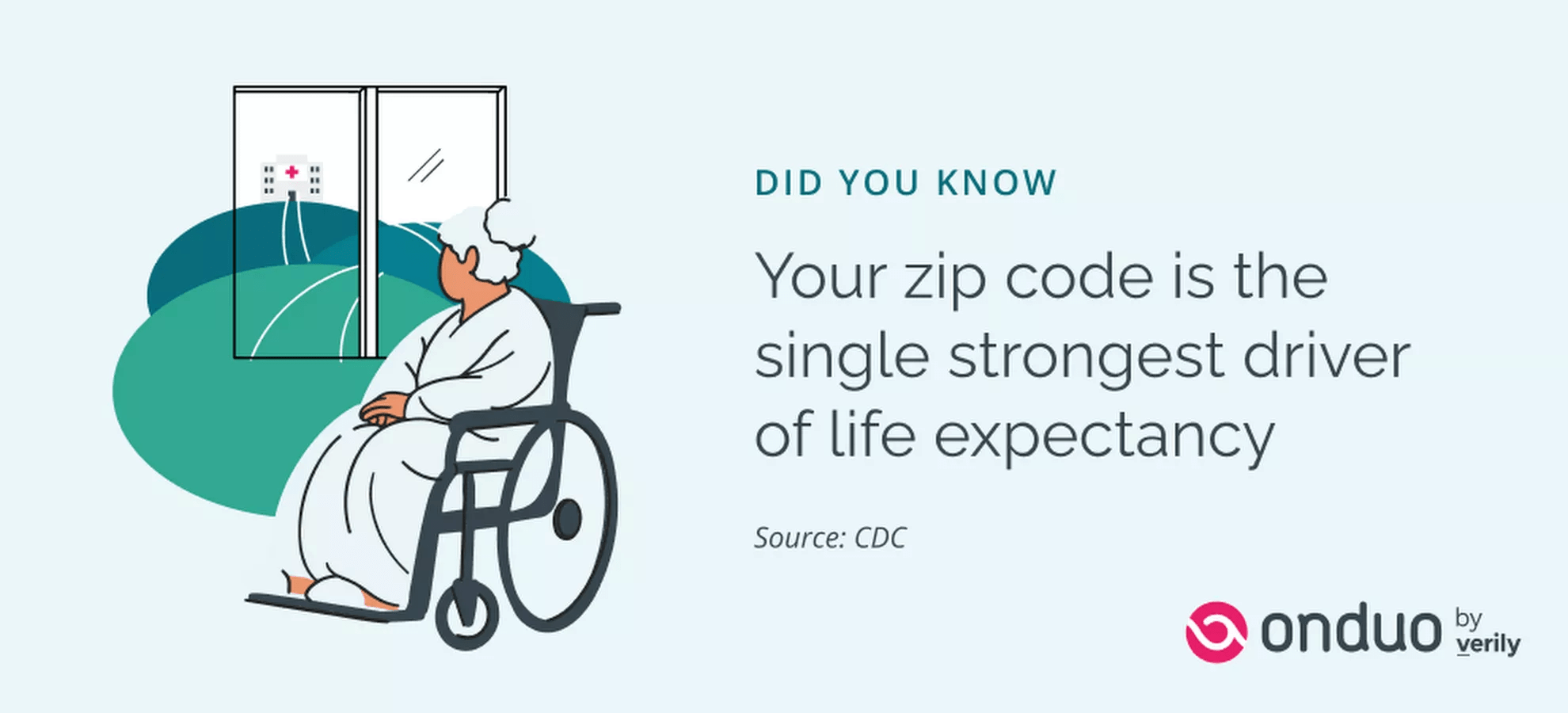Onduo by Verily tackles social determinants of health in new Commitment to the Conversation series on health equity
Social determinants of health — factors of the environments where we live — provide an essential layer of context to understand an individual’s health outcomes. Verily’s mission to make precision health a reality hinges on taking into account all the nuances that make an individual’s health unique, and tailoring the right intervention at the right time. As such, we’re committed to making social determinants and equity a central component of the conversation around health.
This month, industry leaders from Onduo by Verily, a virtual care model for chronic disease management, sat down for the first episode of Commitment to the Conversation, a series focused on better contextualizing and personalizing care delivery. Here are some of the highlights from the conversation, which focused on inclusive design, human-centered care, and population health:
Gathering and acting on social determinants data:
Looking at social determinants data helps us assess whether healthcare is equitable. For instance, examples of social determinants of health include access to medication, food, transportation. Other examples include having parks and community spaces available, experiencing discrimination, and economic and housing stability.
Traditional, fully clinic-based, fee-for-service approaches to healthcare have not done enough to break down disparities in care.
87% of people have smartphones, allowing digital health and telehealth to remove barriers due to time or distance and make healthcare more accessible and convenient.
Flexible architecture for better health outcomes:
The ability to gather continuous, diverse data and focus on the right path for an individual requires a technology infrastructure that we've not had in medicine before.
Traditional clinical metrics, like lab values, don’t take into account the factors that influence health outside the four walls of a clinic. Systems like electronic health records were not built to incorporate social determinants data.
We need new systems to take full advantage of contextual social data and enable two-way communication between providers and patients.
Individuals and providers, especially in the chronic disease space, usually know what the “right” thing to do is for optimal health, but face barriers in actualizing them.
At Onduo, we aim to make the right thing the easy thing for communities that are under stress and face challenges in areas of social determinants. Evidence-based guidance, resources, and coaching are available in a self-guided way.
Learnings and impact based on social determinants:
Once people have enrolled in Onduo, there are healthcare disparities that reflect the healthcare that they had been receiving before coming to Onduo. In particular, irregular blood glucose level control is more prevalent in people from communities with low household income, and from Black and minority populations, reflecting disparities that we found also in the literature.
Once they come into Onduo, we see that these people, regardless of their social determinants, are equally engaged in the digital health program.
For every single social determinant of health variable, both the advantaged group and the disadvantaged group had equally substantially improved blood glucose control outcomes with Onduo compared with the usual care. There was no difference in impact whether the Onduo member came from a rich community or a poor community, from a minority or a majority community, whether from a rural area or an urban area, more educated or less educated. Every group had substantially improved glucose control compared with usual care.
We’re proud of the progress made thus far within Onduo and look forward to continuing to advance health equity as part of our mission. To learn more, you can listen to the replay of episode one here, and catch the next episode of Commitment to the Conversation on June 7.
